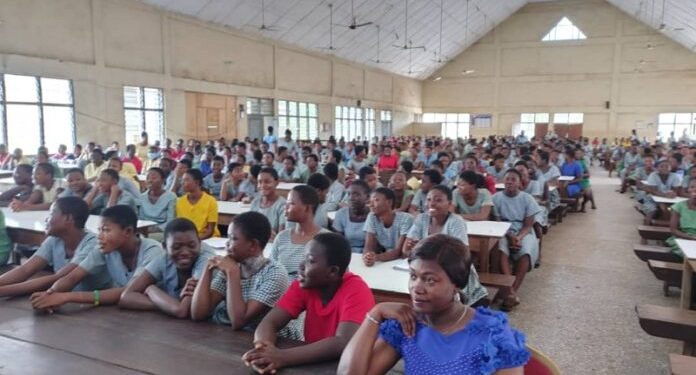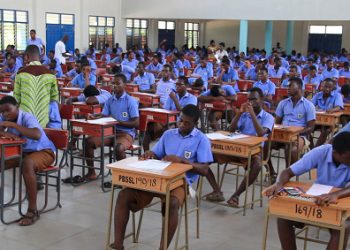The Conference of Heads of Assisted Secondary Schools (CHASS) is urging the government to reconsider its stance on a cut-off point for entry into senior high schools from the junior high school level. According to CHASS, this would give senior high schools a better opportunity to aid students in advancing academically.
The Education Minister, Dr. Yaw Osei Adutwum, challenged the Conference of Heads of Assisted Secondary Schools (CHASS) and Principals of Technical and Vocational Education and Training (TVET) Institutions to improve their educational outcomes or stand the risk of having their institutions closed down.
He exlained that a school with a consistent zero to ten percent pass rate should put together intervention programmes to ensure that the majority of their students will find opportunities for further studies rather than becoming a liability to their parents and society due to their inability to pass their exam.
The Minister explained that closing down the schools would help save the nation from the huge financial losses being incurred by the government as a result of the existence of the schools so that the affected students would be redistributed to other nearby schools, so they could continue their education.
Dr. Adutwum announced this over the weekend when he addressed the members of the Conference of Assisted Senior High Schools (CHASS) and Principals of Technical and Vocational Education and Training (TVET) institutions in Kumasi on Saturday and Sunday.
Speaking to Mark Smith on the Day Break Upper East Show, the Upper East Regional Chairman of CHASS, Richard Akumbasi, explained that it would be difficult for the schools to achieve what is expected of them if the Ministry of Education doesn’t support them with logistics and some policy amendments.
“During the discussions, issues around performances came up. We looked at the performances of schools from 2017 to 2022, and I think we looked at the first 20 schools and the last 20 schools at the bottom. The real concern of the ministry was that there are schools that consistently score 0% or 1%. The concern was even for the 0% that, for 6 years, you will have schools that cannot produce a single person that would proceed to the tertiary level after SHS. That was a great concern. At the end of the day, we also agreed that because of the way the classification is done, using just WASSCE results, it is also not the best. We know that at such schools that are consistently scoring very low, the students that go there are also students that have very bad grades. The aggregate 45s and such. Some even go there when they cannot even read or write. I have consistently said that, if you bring a student to me and he or she cannot read and write, but at the end of the day, the student is leaving my school and can read a write, and even may be leaving with an aggregate of 45, which does not qualify the person for tertiary, then at least the school has done well. The school has been able to teach the student to read and write.”
An institution of a fair cutoff point at the JHS level would help the schools perform better.
“We agree that the schools are supposed to help the children progress academically, but if at the basic level, there is no cutoff point, then there is a problem. If there was a cutoff point, for example, to progress from the JHS to the SHS, maybe aggregate 35 is needed, and they now come to us and we are not able to meet a cutoff point, then that is the problem. But how come there is a cutoff point at the university level but not at the SHS level?” he asked.
Additionally, Mr. Akumbasi called on the government to strengthen education at the basic level, as this would help reduce the burden on staff and management at the senior high school.










Discussion about this post